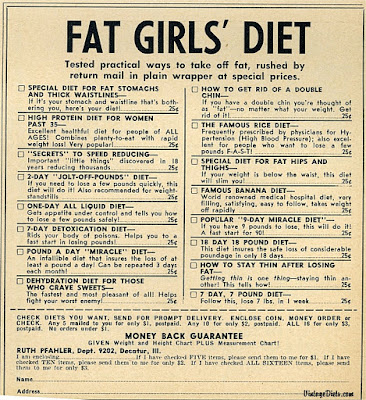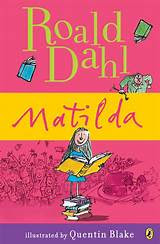Absent Food in Dieting
For my last blog post I will revert back to discussions on the voluntary giving up of foods, this time through a topic which I have a personal connection to.
From a early age I was educated profusely on the importance of maintaining a healthy diet and keeping fit, which meant being preferably thin. As someone who trained for five years as a track and field athlete I was constantly reminded by my coach on what foods I should eat and how regularly I should exercise. Fast forward a few years and going onto Instagram I am bombarded with sponsored ads of diet pills and even diet gummy bears and skinny teas which are designed to help you lose weight fast. It seems like dieting and its various discussions in day-to-day life and in the media have followed me throughout my life and are everywhere I look.
Whilst remaining healthy and restricting certain fatty and sugary foods in order to attain weight control is in my eyes an entirely positive way to live (to a certain degree - it's okay to have a takeaway every so often!) I do believe that most of the dieting adverts we see on television, in magazines, online and everywhere we go are destructive and their depictions of food and the enjoyment of eating are created in a way in order to make the person viewing the advert feel negatively about food when in reality food can most certainly be enjoyed in moderation as long as what you are eating is balanced.
As a result of this I will explore a few dieting adverts I have found which depict food and eating in negative ways, thus aiding my argument that absent food is once again a negative concept, that we should be encouraged to abstain from food which is obviously not good for the body over a long period of time.
Michelle Lelwica writes in "The Religion of Thinness" that it is important we remember "the Jewish/Christian creation myth about how sin enters the world" as "it is through the act of a woman eating - through Eve's disobedient appetite" (Lelwica 266). Perhaps this is why so many dieting adverts, mostly all of them, are targeted towards women, as women abusing food has been a concept from the beginning of time itself.
For example, the advert listed above implies that the woman has already disobeyed her appetite and is thus fat. The advert is destructive in its heading as it implies that the reader is a fat girl which may not be necessarily true. As a result, this could increase eating disorders and continue to support someone's belief that they are not good enough, not thin enough and that they must change their diet.
From a early age I was educated profusely on the importance of maintaining a healthy diet and keeping fit, which meant being preferably thin. As someone who trained for five years as a track and field athlete I was constantly reminded by my coach on what foods I should eat and how regularly I should exercise. Fast forward a few years and going onto Instagram I am bombarded with sponsored ads of diet pills and even diet gummy bears and skinny teas which are designed to help you lose weight fast. It seems like dieting and its various discussions in day-to-day life and in the media have followed me throughout my life and are everywhere I look.
Whilst remaining healthy and restricting certain fatty and sugary foods in order to attain weight control is in my eyes an entirely positive way to live (to a certain degree - it's okay to have a takeaway every so often!) I do believe that most of the dieting adverts we see on television, in magazines, online and everywhere we go are destructive and their depictions of food and the enjoyment of eating are created in a way in order to make the person viewing the advert feel negatively about food when in reality food can most certainly be enjoyed in moderation as long as what you are eating is balanced.
As a result of this I will explore a few dieting adverts I have found which depict food and eating in negative ways, thus aiding my argument that absent food is once again a negative concept, that we should be encouraged to abstain from food which is obviously not good for the body over a long period of time.
Michelle Lelwica writes in "The Religion of Thinness" that it is important we remember "the Jewish/Christian creation myth about how sin enters the world" as "it is through the act of a woman eating - through Eve's disobedient appetite" (Lelwica 266). Perhaps this is why so many dieting adverts, mostly all of them, are targeted towards women, as women abusing food has been a concept from the beginning of time itself.
For example, the advert listed above implies that the woman has already disobeyed her appetite and is thus fat. The advert is destructive in its heading as it implies that the reader is a fat girl which may not be necessarily true. As a result, this could increase eating disorders and continue to support someone's belief that they are not good enough, not thin enough and that they must change their diet.
Moreover, this advert directly tells its viewers to abstain from food, so much so that every food advert they see on television is a indication of what not to eat. This again is a highly damaging advert as adverts for foods are not limited to fast foods and takeaways, they can include the promotion of healthy meals and snacks full of protein and nutritious ingredients. To name a few adverts from the top of my head that I can guarantee are on television are yoghurt adverts, adverts for meats such as chicken and fish and adverts for pastas - all of which I have seen numerous times on my television. The advert also sets up a negative agenda of food not being trusted - Is this really low in calories? Is this really good for me? Can I eat this on a diet? and so on.
Ultimately, these adverts imply that women in particular cannot be trusted with and food and are unable to regulate it properly, so they should therefore lose weight and make drastic changes to their diet. The first advert in particular implies that the body a woman already has is not the desired one and they must do something about this.
Absent food is therefore negative again as these adverts are setting up food to be an entirely destructive supplement before it is even taken away or seen, that we must restrict food rather than enjoy it if we want to look good and feel good, which of course is not the case - we are allowed to indulge every now and then!




Comments
Post a Comment